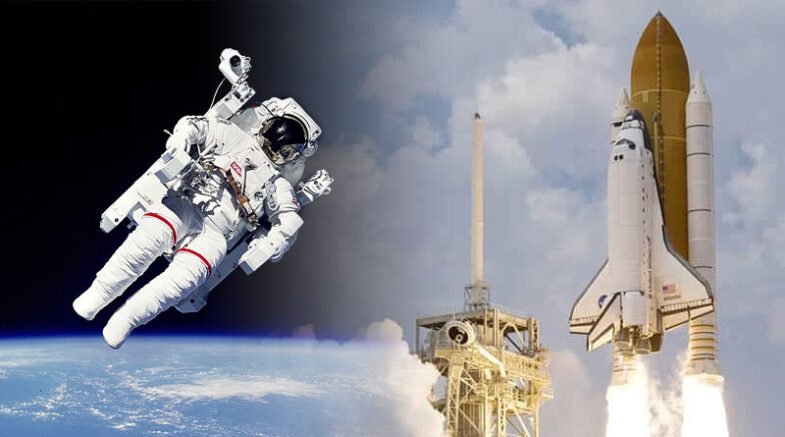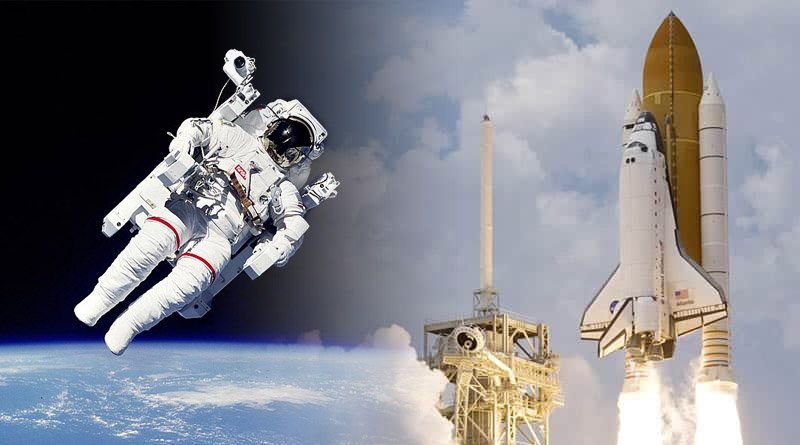NASA has awarded incentive grants to three space corporations to build commercial orbital platforms that will start operating by the end of this decade.

Civilians will soon travel, live, and work in space, bringing with them their illnesses, chronic health problems, and disabilities. This changes the space story, as until now, career astronauts have been the only travelers in space. New space businesses are launching, and the travelers and workers will be mostly civilians.
This influx of civilians into space has already begun. Over the past few years, “New Space” companies Blue Origin and Virgin Galactic have transported paying or privately funded passengers into suborbital space, 50 to 60 miles above Earth. Billionaire Jared Isaacman rented Elon Musk’s Crew Dragon Resilience spacecraft in September 2021 to travel around the Earth for three days with three other people.
Isaacman and Musk are planning to take a private crew of four to the highest Earth orbit ever flown. NASA has awarded incentive grants to three space corporations to build commercial orbital platforms that will start operating by the end of this decade.
NASA’s reports on astronauts before, during and after extended space travel and habitation show that they face chronic motion sickness, neurological disorders, cardiovascular problems, increased risk for blood clotting and vision problems, as well as increased risks of cancer, muscle atrophy and bone loss.
The CDC reported that in 2022, six in 10 adults had chronic disease and four in 10 had two or more chronic diseases, and one in four had disabilities. This adds a new and challenging dimension to space hazards on the human body.
NASA has learned that the health profiles of astronauts and civilians are notably different. Despite their excellent health, physical and mental fitness, and years of training, astronauts are willing to take risks.
With the support of the National Space Council, the Commercial Spaceflight Federation (CSF) hosted a historic scientific conference in 2021 to get ahead of this issue. A workshop of 100 experts, which I co-chaired and was intended to develop the first-ever “Human Research Program for Civilians in the Commercialization of Space,” identified high-priority human research projects to protect civilians in space.
Unfortunately, some of the private space companies that originally funded the programme for health research now seem uninterested.The space industry is turning around due to a 2004 decision by Congress to impose a moratorium on new safety regulations on human spaceflight.
This “learning period” has been extended several times, giving the industry leeway to experiment with humans. Companies are also competing with each other and challenging the cautions about the fragility of civilians in space, arguing that the hazards will have minor or short-term health impacts.
Elon Musk referred to Inspiration 4 spaceflight as “an intense roller coaster ride” and said anyone can tolerate it. Some in the industry prefer to place average civilians in spaceflight, study them during and after flight, and then examine ways to protect civilians in future flights.
This risk-ridden approach to discovery is reminiscent of the Wright brothers, who had multiple crashes and the first air passenger death.
The best approach is to conduct an unbiased, objective, large-scale, scientific human research program against all the known risks of space travel, but given today’s space race realities, let companies send civilians into space only after they have undergone a thorough physical, mental, and performance examination and preparatory training comparable to that of NASA’s career astronauts.
Each business should make its preflight performance and health testing and training programme public.
The space industry should also openly back the human research programme it first backed. By taking these actions, civilians could be safely and responsibly sent into space in the upcoming months and years. It would help safeguard civilians in space, benefit the industry, and ensure public confidence.
We need health research right away, even in the absence of industry support, to safeguard future space travellers who will be civilians, according to the Federal Aviation Administration‘s Office of Space Transportation (AST). The AST is well-equipped to carry out its mission with expertise, experience, and a well-functioning organisational structure.
The time to act is now by asking the Biden administration and Congress to fund a program of human research for civilians in space before it is too late, and we learn once more that “guinea pig” discoveries are rarely happy ones.
